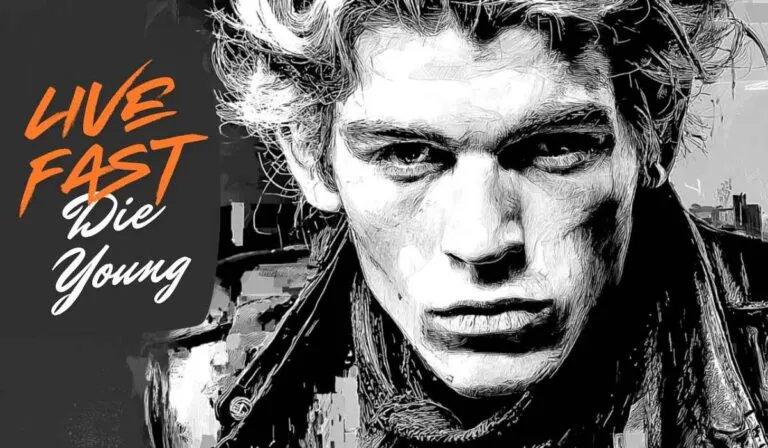R. Kelly was once a towering figure in R&B, a multimillionaire whose voice dominated the charts and whose influence touched every corner of the music industry.
His name now sparks controversy, scandal, and financial ruin.
In 2025, his story continues to echo in discussions about celebrity downfall, accountability, and the devastating consequences of legal and personal misconduct.
Table of Contents
ToggleWhat is his Net Worth in 2025?
By 2025, R. Kelly’s financial situation has completely collapsed and is now estimated at negative $2 million. His net worth shows the sheer magnitude of legal, personal, and managerial failures that drained decades of earnings.
Once sitting on tens of millions, he now faces debt that far exceeds any remaining income streams. Years of trials, settlements, and penalties left no breathing room for financial recovery.
Court-ordered payments, combined with restitution to victims and legal counsel fees, consumed all available resources. Creditors and legal entities hold claims over any future earnings, making asset rebuilding practically impossible.
Although a few residual royalties still flow in, they are far from sufficient. Streaming payouts and rights to past compositions bring in modest sums, but most of it goes directly toward fulfilling court-mandated obligations.
Incarceration further limits any potential for revenue generation, cutting him off from performances, collaborations, or new releases.
- Owed in Legal Fees: Estimated $4–5 million across multiple trials
- Back Child Support and Settlements: Over $500,000 combined
- Royalties and Residuals: Less than $100,000 annually, most redirected to debt
- Incarceration Costs: Inability to earn, coupled with ongoing expenses and fees
- Assets Liquidated or Seized: Properties sold, royalties frozen, and accounts emptied
No realistic path remains for financial independence. Reputational damage blocks commercial revival.
Even hypothetical post-incarceration opportunities, book deals, documentaries, or interviews would be entangled in lawsuits or seized to pay damages.
Early Career & Peak Financial Success
R. Kelly burst into the spotlight with the release of 12 Play in 1993, a defining R&B album that brought him mainstream recognition. “Bump n’ Grind” topped charts and became a cultural staple.
Not long after, “I Believe I Can Fly” catapulted him to international stardom, earning multiple Grammy Awards and becoming an anthem of inspiration. “Ignition (Remix)” followed with overwhelming success, dominating radio play and securing his reputation as a hitmaker.
Mainstream audiences couldn’t get enough of his blend of sensuality, vocal range, and smooth production. Collaborations with pop royalty, including Michael Jackson (“You Are Not Alone”), Whitney Houston, and Celine Dion, further solidified his role as a key figure in modern R&B.
Behind the curtain, he became one of the most in-demand producers and songwriters, shaping the musical style of many 1990s and early 2000s artists.
Success wasn’t just measured in Billboard rankings. R. Kelly’s influence was felt throughout the music industry.
- Platinum-certified albums such as R., TP-2.com, and Chocolate Factory sold millions of copies.
- Top charting singles that remained in regular rotation on radio stations worldwide.
- Producing credits for artists across genres, expanding his impact outside his discography
Financial High Point
As his music career skyrocketed, so did his financial status. At the peak of his success, his estimated net worth hit $150 million. Music served as the foundation, but multiple income sources fed into his fortune.
Albums moved units by the millions. Stadiums filled. Royalties came in constantly, not just for his work but for songs penned for others.
- Album sales in physical and digital formats.
- Concert tours that generated tens of millions globally.
- Songwriting and production royalties due to his extensive catalog.
- Publishing rights that added consistent revenue through licensing.
In addition to music-related earnings, brand partnerships and licensing deals expanded his empire. Endorsements, merchandise, and media appearances added layers to his business ventures.
- Multiple residences, including lavish estates and penthouses.
- Exotic car collections with high-end models such as Bentleys and Ferraris.
- Private jet travel and luxury vacations.
R. Kelly enjoyed financial power few artists achieve, creating an empire that reflected his dominance in both sound and style. At this point in his career, decline was unimaginable.
Signs of Financial Trouble
R. Kelly’s financial downfall wasn’t sudden, it unfolded over years through a mix of unchecked extravagance, poor financial decisions, misplaced trust, and criminal accusations. Long before his legal troubles reached their peak, cracks in his financial foundation were visible.
Lavish expenses, a lack of control over his finances, and dishonest advisors contributed to a dramatic collapse. What appeared to be the lifestyle of a successful artist was, in reality, built on fragile and deteriorating ground.
@millionaire_billionaire R.Kelly TAKES ON U.S. Supreme Court in SHOCKING Conviction Appeal 😍❤️ #shorts #rkelly #celebrity ♬ original sound – M & BILLIONAIRES PLAYGROUND
Lavish Spending & Poor Financial Oversight
Financial excess defined his lifestyle. He poured money into extravagant purchases that drained his earnings faster than they accumulated. For years, there seemed to be no regard for long-term financial security or budgeting.
- Multi-million-dollar homes in various cities
- An extensive wardrobe including high-end designer clothing and jewelry
- Exotic animals as pets, which came with costly upkeep
- A constant entourage of employees, friends, and enablers, all funded through his accounts
- Private jets and luxury vehicles, often replaced or upgraded unnecessarily
Financial professionals within his circle failed to keep him on track. There were claims that accountants and managers misused funds or failed to alert him about poor cash flow. Instead of stepping in to set limits, many allegedly contributed to the drain, enabling him to spend freely to maintain an image.
Red flags were often ignored. There was no meaningful accountability system in place. Receipts went unchecked, business ventures lacked transparency, and personal spending overshadowed any form of responsible investment or savings strategy.
Stolen Funds & Poor Oversight
R. Kelly eventually spoke publicly about his financial mismanagement. In a 2019 CBS interview, he declared, “So many people have been stealing my money.”
- At one point, he reportedly had only $300,000 left in his bank account
- Millions earned throughout the 1990s and 2000s were nowhere to be found
- Inability to post bail in 2019 for an amount that was relatively minor compared to his past earnings
His failure to post bail served as a public confirmation of how far he had fallen.
Many were stunned to see someone with such an extensive catalog and career unable to afford his freedom.
Legal Entanglements and Their Costs
Legal issues became a defining element of R. Kelly’s downfall, gradually unraveling his public persona and draining his financial reserves. What began as isolated allegations escalated into full-scale legal warfare spanning two decades.
- Early 2000s: Faced child pornography charges after a video surfaced allegedly showing him engaged in illicit acts with a minor.
- July 2019: Arrested on federal charges involving racketeering, sex trafficking, and sexual abuse of minors across multiple states.
- September 2021: Convicted on nine counts in a Brooklyn federal court. Charges spanned decades and included sexual exploitation, coercion, and enticement.
- June 2022: Sentenced to 30 years in federal prison, permanently ending his public career and cutting off future income opportunities.
Financial ramifications of these legal battles were severe and compounding:
- Millions spent on a rotating team of high-profile defense attorneys and legal consultants.
- Settlements paid out to victims outside court to avoid trials or media exposure.
- Example: Tracy Sampson received a $250,000 settlement in 2002 after alleging sexual misconduct while interning at Epic Records.
- Accumulated child support debt of $161,000 resulted in his arrest in 2019, drawing more attention to his financial mismanagement.
- Court-ordered restitution and administrative fines added another layer of debt, consuming whatever remained of his dwindling assets.
Legal obligations didn’t just cost money, they cost reputation, work eligibility, and any possibility of a comeback.
Loss of Income Sources
Once celebrated and in constant demand, R. Kelly lost access to nearly every revenue stream that sustained his fortune. While lawsuits were depleting his finances, social pressure and public outrage were simultaneously closing doors.
Not only did he lose his ability to work, but previous work began losing value in the court of public opinion.
- Documentary Surviving R. Kelly aired in 2019, triggering widespread condemnation and global scrutiny.
- #MuteRKelly movement gained momentum, calling on fans and platforms to remove his influence from modern music spaces.
Major streaming services such as:
- Spotify
- Apple Music
- Pandora
Removed his music from playlists, halting exposure and algorithmic discovery. Radio stations across the United States stopped playing his tracks, reducing residual income and relevance.
The Bottom Line
R. Kelly’s collapse serves as a stark reminder of how fame, fortune, and talent can crumble under the pressure of criminal conduct, reckless decisions, and financial mismanagement.
His downfall highlights the importance of ethical behavior, responsible money handling, and the severe consequences that follow unchecked influence and abuse of power.
Related Posts:
- Alana Springsteen's Net Worth in 2025 - Earnings,…
- How Much is Walter Williams of The O'Jays Worth in 2025?
- Kendrick Lamar Net Worth in 2025 - Updated Report on…
- How Much Is Courtney Hadwin Worth? A Look at Her…
- Eddie Levert’s Net Worth 2025 - A Closer Look at His…
- Drake Net Worth 2025 - Earnings, Career, and…












